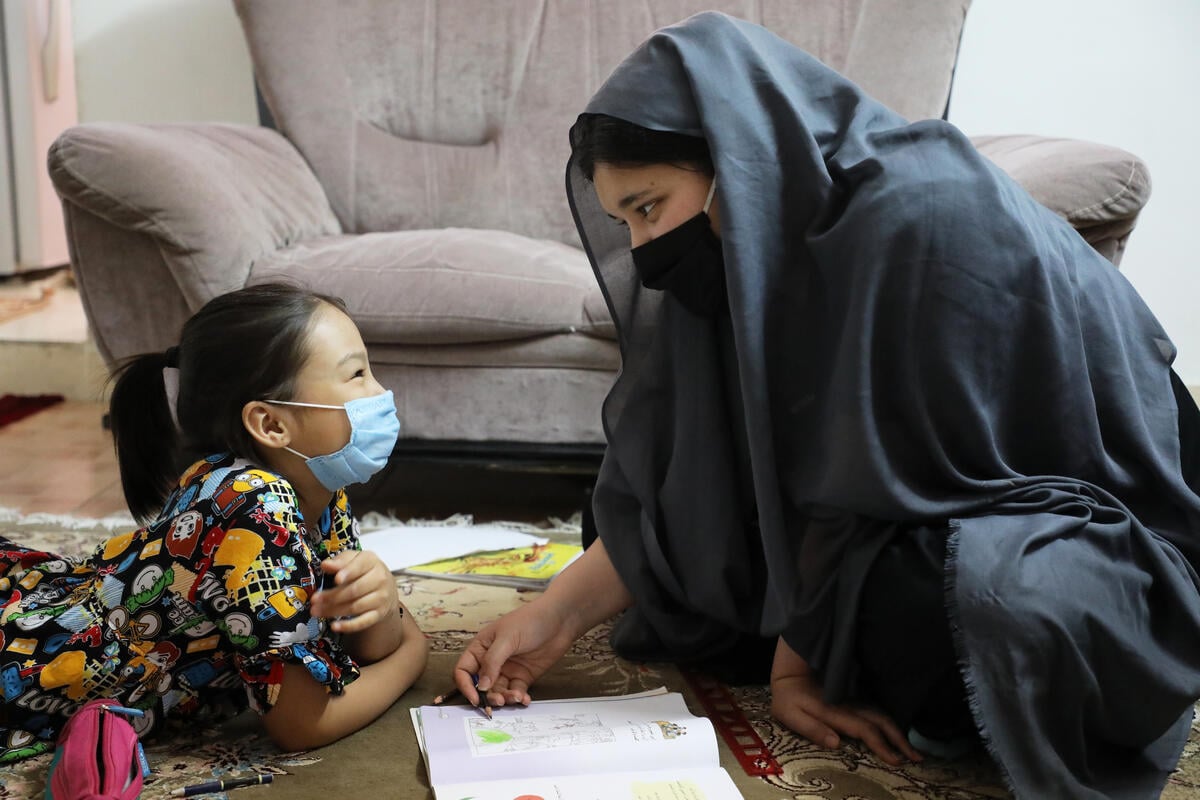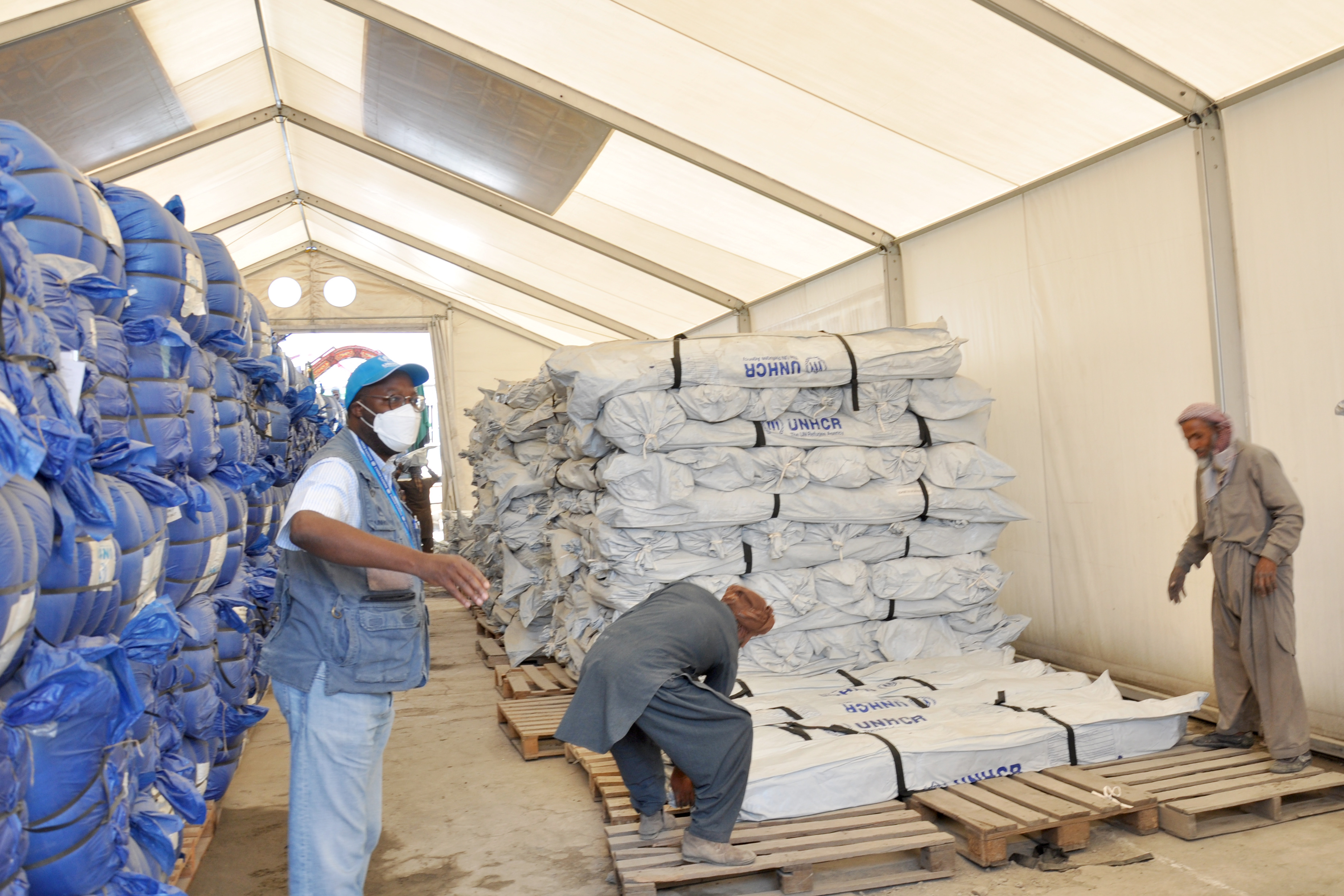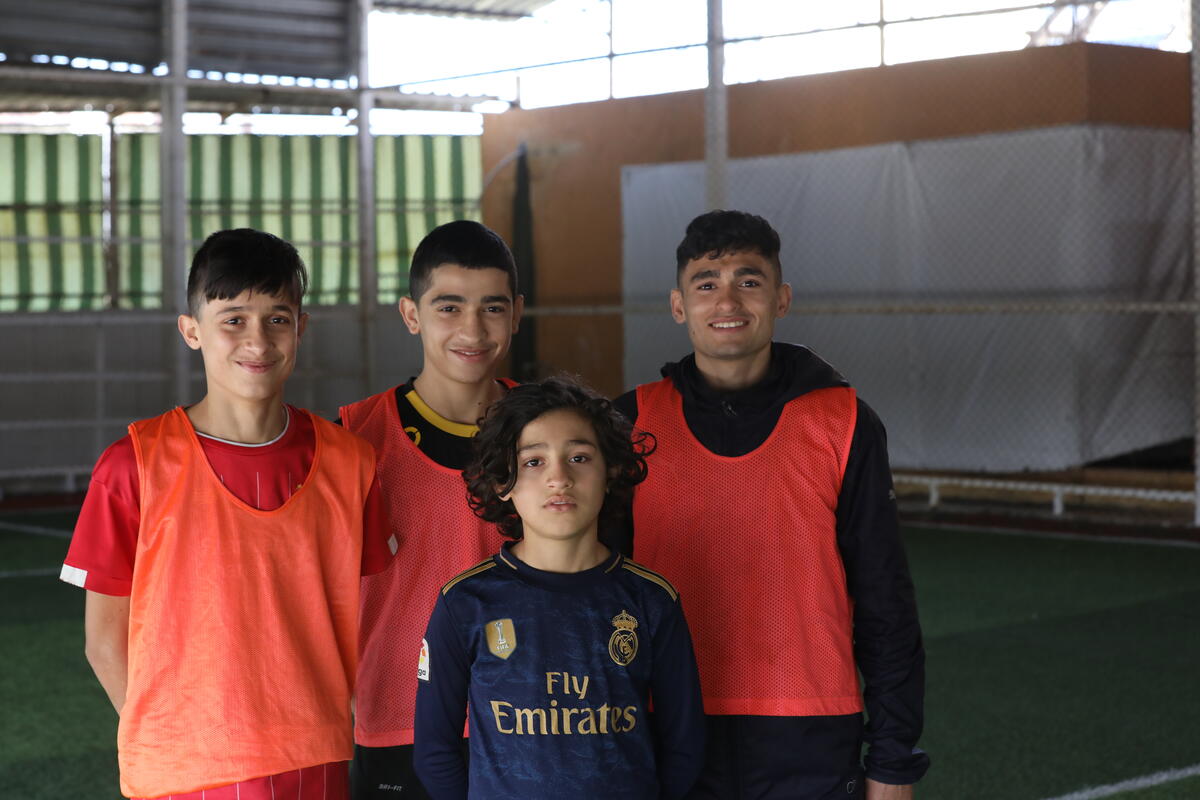Feeling the pulse of health, hygiene in Pakistan's quake zone camps
Feeling the pulse of health, hygiene in Pakistan's quake zone camps

MUZAFFARABAD, Pakistan, August 11 (UNHCR) - The UN refugee agency has just completed a community-based programme highlighting the link between camp dwellers and the hygiene environment in the relief camps of Pakistan's earthquake zone.
Dubbed Operation Heartbeat, the two-week sustainable hygiene initiative was launched in Muzaffarabad, the provincial capital of Pakistan-administered Kashmir, and focused on all eight camps in the surrounding Jehlum Valley housing some 3,400 survivors of last year's devastating earthquake.
The operation aimed to increase public awareness and support in the camps for hygiene care. It did this by mobilising the community and implementing programmes and activities to strengthen each link of the chain.
"We need to see camp dwellers not simply as the beneficiaries of humanitarian aid, but as potential contributors to sustainable development," explained Catherine Harding, UNHCR's community services officer in Muzaffarabad.
"Since the October 8 earthquake, more than half of the curative medical services provided in the quake zone were for diseases linked to poor hygiene and sanitation. Community-based health education, with a particular emphasis on hygiene promotion, is therefore paramount," added Harding.
The campaign in the Jehlum Valley camps was carried out by UNHCR's operational partner, Operation Heartbeat, a United States-based medical relief organisation that had been providing health and hygiene education in areas outside the camps.
Interactive public health modules, tailored for the camp population and addressing hygiene awareness needs in the Jehlum Valley, were designed for the initiative. The modules were designed to cover all age groups and Harding noted that "children expressed themselves through drawings and sketched what they thought was personal hygiene: washing hands, washing teeth."
Hygiene kits - provided by the UN Population Fund - were distributed to each family. They contained towels, soap, bandages and liquid antiseptic.
To ensure a more long-term, sustainable impact, community representatives were selected from the camp population in the Garhi Dopatta area and trained on health education issues. These focal points are now expected to educate their own communities on hygiene and sanitation.
Since March 2006 - when authorities announced that camps would start closing - more than 147,012 people have gone home and 100 camps have closed. Some 31,000 people remain in 56 major camps in North-West Frontier Province and Pakistan-administered Kashmir.
Ensuring basic living standards for people in the camps has been one of UNHCR's priorities as the lead agency for camp management under the joint UN response. "The focus now is to ensure that adequate hygiene standards are maintained in camps hosting this residual population," said Kilian Kleinschmidt, head of UNHCR's emergency operations in Pakistan.
In the run-up to Operation Heartbeat, UNHCR had introduced a community-based weekly "clean-up" campaign in the camps. With camp dwellers in the lead, the campaign is still running strong.
The UN refugee agency is currently building the capacity of the authorities and other humanitarian agencies to take over camp management when UNHCR ends its direct involvement at the end of August.
By Fatma Bassiouni in Islamabad, Pakistan









